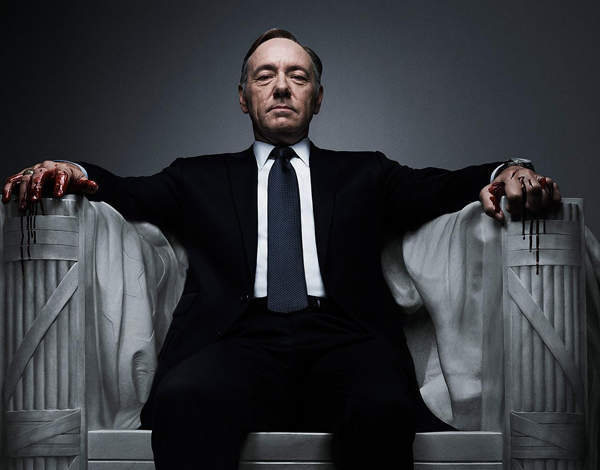

For any House of Cards fan, the weekend just gone was like manna from heaven, as if Doug Stamper had charged you with a semi-legal task for Frank, or Remy had just given you permission for a secret tryst with Jackie Sharp.
Having waited months for the next instalment of the cult Netflix political drama, millions around the world sat in suspense as Frank Underwood, the president everybody loves to hate, squirmed his way from challenge to disaster, upheaval to conflict.
Without spoiling the end for those who couldn’t give their time to the Underwood 2016 Campaign, a number of themes were brought up over the course of thirteen riveting episodes that reflected our current political climate.
1. How boring British politics is in comparison – We all know that House of Cards isn’t real. However, from Watergate to Monica Lewinsky to the close ties the Bush and Bin Laden family had, American politics is rammed full of intrigue, subterfuge and scandal, and this is reflected to devastating effect in House of Cards. Everyone would love to see Frank Underwood take down Ed Miliband in a presidential debate, which would likely be a more brutal dismembering than Frank’s callous and calculated destruction of President Walker.
2. Russia is everybody’s favourite bogeyman – There were few thrillers during the Cold War which didn’t have a cold, duplicitous and evil Russian as the West’s adversary – and this archetype is making a comeback. Viktor Petrov as the Russian president was genius, a doppelganger for Putin displaying all of the same icy charm, untrustworthiness and skullduggery of the President on which he is based. From gay rights to Russia’s European borders to its role in the Middle East, House of Cards reflected the tension that exists between Russia and the West and the degeneration back to cold war adversarial politics currently being played out.
3. They all sell out eventually – Ed Miliband’s lampooning of the Conservatives for the tax affairs of their donors, taking the moral high ground and pontificating about being a man of the people while cocooned in the wealthy liberal intelligentsia bubble of North-West London, seems strikingly similar to Heather Dunbar, Frank’s challenger.
Born into wealth and matured in legal academia, she calls out Frank for ‘rationalising the obscene into the palatable’, only to later use the same underhandedness routinely exhibited by Frank when she attempts to hold Claire Underwood’s secret abortion against the president. Red Ed, despite his public stance, has been found to call on similar sorts of ‘tax-efficient’ donors as the Conservatives have.
4. Are there any role models in politics? – House of Cards exhibits the purest form of self-serving politics, and while at the end of the show we can switch off, for many of the younger generation who won’t vote come May, the whole political process seems disassociated and narcissistic, more about the leader’s legacy and point-scoring than genuinely effecting change: America Works for Frank, Mansion Tax for Ed.
Whatever happens in the next instalment – Frank’s presidency, conflict with Russia, his marital strife – I’m sure we can continue to draw parallels with the current political climate even as we garner some light relief from real politics.






